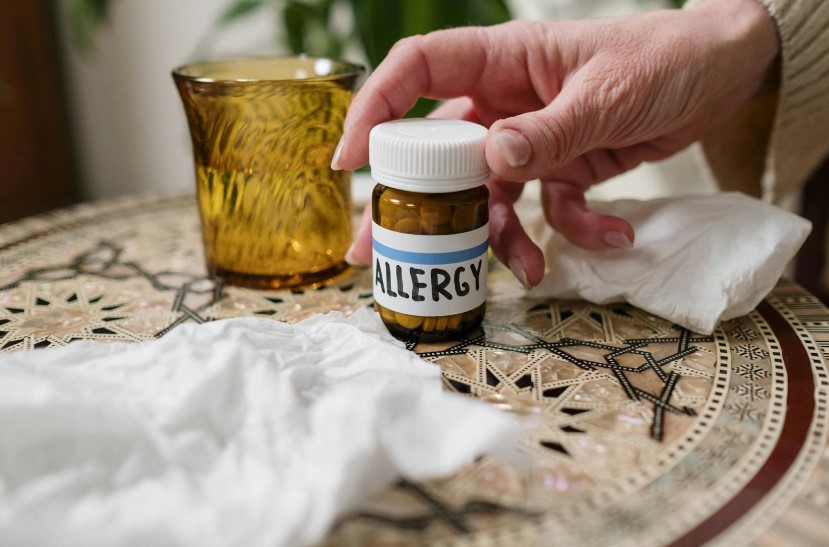
Top 10 Allergens in London: What You Need to Know
Allergies affect millions of individuals globally, with London being no exception to this prevalent health concern. Understanding the common allergens in London is important for effective management and prevention.
Here, we explore the top 10 allergens prevalent in the city and provide insights into who may be susceptible to allergies and how to address them effectively.
Pets
For many Londoners, furry companions are beloved members of the family. However, pet allergies can pose a significant challenge for allergy sufferers.
The proteins found in pet dander, saliva, and urine can trigger allergic reactions, leading to symptoms such as sneezing, itching, and respiratory issues.
Proper pet grooming, frequent vacuuming, and creating pet-free zones within the home can help minimize exposure to pet allergens.
Sorrel, Dock
Commonly found in parks, gardens, and urban green spaces across London, sorrel and dock are members of the Polygonaceae family.
While these plants contribute to the city’s greenery, they also release pollen that can trigger allergic reactions in susceptible individuals.
Avoiding prolonged exposure to areas with high concentrations of sorrel and dock pollen during peak seasons can help reduce the risk of allergic symptoms.
Alder
Alder trees, prevalent in London’s parks and woodlands, produce fine, lightweight pollen that can travel long distances in the air. During the spring months, alder pollen levels peak, posing a significant challenge for allergy sufferers.
Keeping windows closed during high pollen counts, using air purifiers, and taking antihistamines as recommended by an allergist can alleviate symptoms associated with alder pollen allergies.
Ash, Birch, Oak
London’s diverse tree population includes ash, birch, and oak trees, all of which produce pollen known to trigger allergies. These trees typically release pollen in the spring, coinciding with the onset of hay fever season.
Individuals allergic to tree pollen should monitor pollen forecasts and take precautions such as wearing sunglasses outdoors and showering after spending time outside to remove pollen from the hair and skin.
Grasses
Grass pollen is a common allergen in London, especially during the summer months when grasses are in full bloom. Allergy sufferers may experience symptoms such as sneezing, itchy eyes, and congestion when exposed to grass pollen.
Minimizing outdoor activities during peak pollen times, using allergen-proof bedding, and regularly washing clothes worn outside can help reduce exposure to grass pollen allergens.
Mugwort
Mugwort, a member of the Asteraceae family, is a common weed found in various habitats, including wastelands, roadsides, and gardens.
Its pollen can trigger allergic reactions in susceptible individuals, particularly during the late summer and early autumn months.
Those sensitive to mugwort pollen should avoid areas where the weed is prevalent and consider wearing a pollen mask when gardening or engaging in outdoor activities.
Mould (Cladosporium)
Mould spores are omnipresent in the environment, thriving in damp, poorly ventilated spaces such as bathrooms, kitchens, and basements. Cladosporium is a type of mould commonly found both indoors and outdoors in London.
Exposure to mould spores can exacerbate asthma symptoms and trigger allergic reactions in some individuals. Proper ventilation, regular cleaning to prevent mould growth, and using a dehumidifier can help control indoor mould allergens.
Dust Mites
Dust mites are microscopic organisms that thrive in indoor environments, particularly in bedding, upholstered furniture, and carpets.
These common allergens can trigger allergic reactions year-round, leading to symptoms such as sneezing, coughing, and respiratory congestion.
Encasing mattresses and pillows in allergen-proof covers, washing bedding in hot water weekly, and vacuuming frequently with a HEPA filter can help reduce dust mite allergen exposure.
Who Gets Allergies?
Allergies can affect anyone, regardless of age or background. While some individuals may develop allergies early in life, others may experience symptoms later on.
Factors such as genetics, environmental exposure, and immune system sensitivity play significant roles in determining who is vulnerable to allergies.
In Summary
Understanding the top allergens in London is essential for individuals seeking to manage their allergies effectively.
Through identifying common triggers such as pet dander, pollen, mould, and dust mites, allergy sufferers can take proactive steps to minimize exposure and alleviate symptoms.
Consulting with an allergist in London for allergy testing and personalized treatment recommendations allows individuals to lead healthier, more comfortable lives despite allergies.
Through awareness, education, and proactive management, Londoners can adapt to allergy season with greater ease and enjoy the city’s vibrant surroundings year-round.

